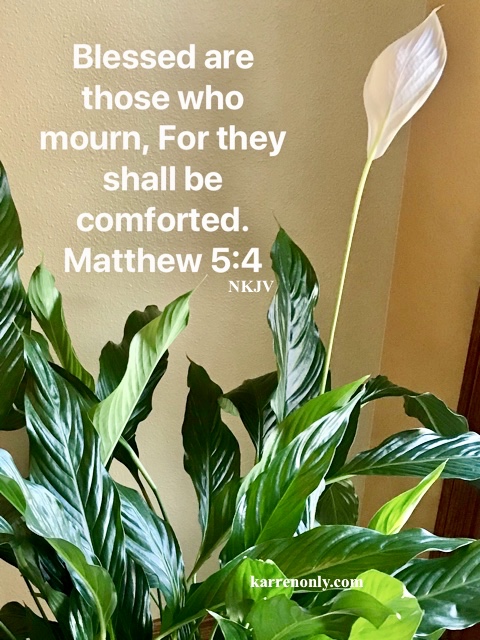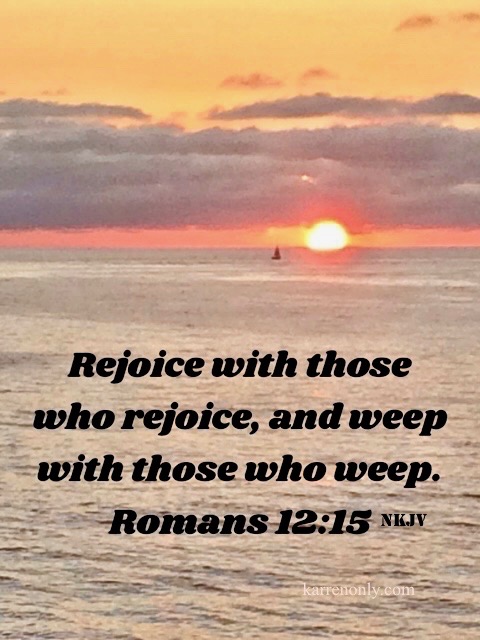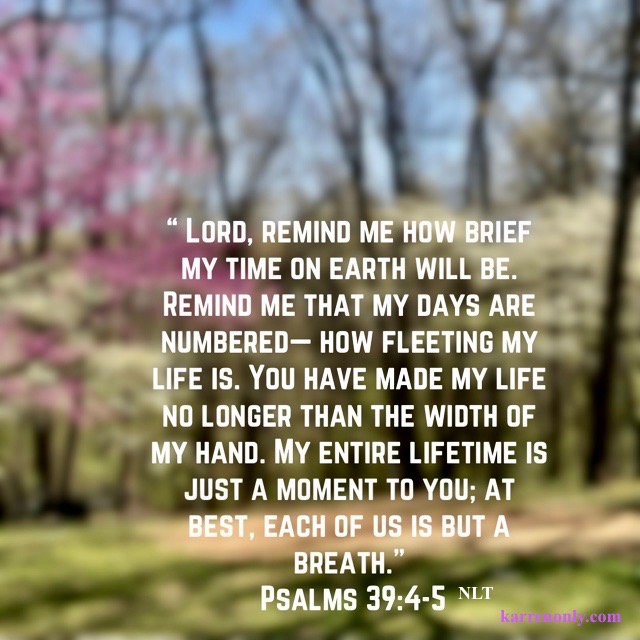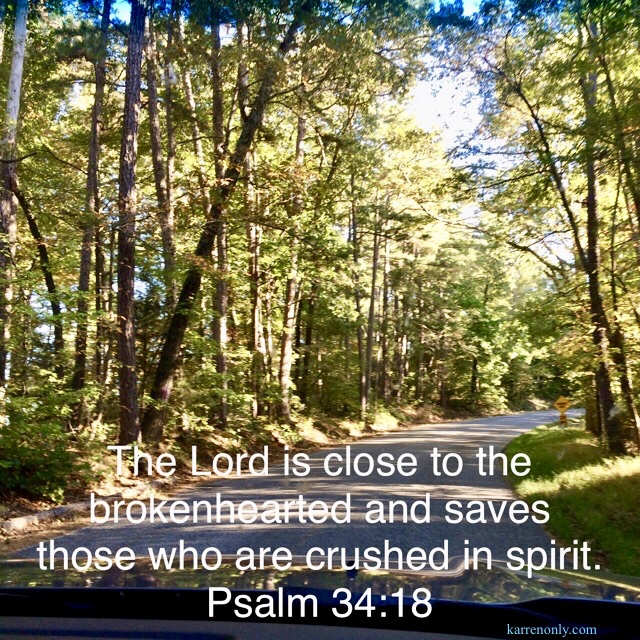
Okay, I feel compelled to share these thoughts about GRIEF. If it’s too heavy for you, then just please move on. If it speaks to you, then I’m grateful. But, this is on my heart today. I guess it’s been growing in my heart for five years. It seems that today it must be shared with the world.
It is true. All of us can be challenged or encouraged when we watch someone else go through grief. But, it won’t be a feel good experience for us if we’re able to feel their pain, too. If we’ve just enjoyed watching or hearing their story, then we’ve not really felt their pain. None of us can know the pain until we feel it. It’s not just listening to a speaker talk about it, or something in a movie or a book, anymore, when we feel the pain.
It is true. Dr. J.H. Jowett wrote the following words in his devotional book, “My Daily Meditation”: “We can never heal the needs we do not feel. Tearless hearts can never be the heralds of the Passion. We must bleed if we would be the ministers of the saving blood.” Those words can be true about any ministry that we happen to find ourselves in. I kept those words handwritten on an index card in my desk drawer for many years when I was a teacher, so I could pull them out and remind myself of why I was really there. My heart needed to try to feel the pain of some of my students, so I could try to help them live with it. But, I had to always acknowledge that I couldn’t really understand a lot of their pain because I had never felt it. Only Jesus could help me to see and love them through His eyes.

It is true. The community, especially of believers in Christ, can do better with grief. Many widows immediately watch their church community dissolve down to one or two people who check on them or finally evaporate away completely. The Good Samaritan picked up the wounded and helped him. He didn’t just say, “We’re praying for you” or “Call me if you need something” or “We need to get together sometime” or “Let me know when you want to do something.” He also didn’t just ignore him and look the other way. He helped him up and ministered to him with real and tangible help when the wounded man was in no condition to help himself. Laying there right then, he didn’t need a party, a game time, a retreat, or a meeting. He just needed someone to soothe his hurts and to help him heal so he could live life again.
It is true. Not everyone has a lot of “Communities” that support them in grief. Most all of their communities revolved around the team that used to be there–them and their spouse. Once there wasn’t a team, the single person left alone just doesn’t seem to fit in those communities. For some of the communities, it’s a fast exodus, like right after the funeral dinner. For others, it’s a gradual evaporation over the weeks, months, and eventually years. Ask any widow of over three years.

It is true. Each year for a widow, there’s usually more loss of any community where she was part of a team, unless she remarries. Then, she is welcomed to try fitting into that community, again. Most widows over 65, however, do not remarry. Most widowers do seem to remarry quickly, and they frequently choose to marry a younger woman. Normally, it is much easier for a widower to find someone to remarry, than it is for a widow. There’s a lot more available women than available men to choose from, especially as we age.
It is true. People do need to “deal with the emotions” of grief. But, just having conversations about grief is different than just being there to listen to a griever. A listening ear is usually received a lot better than spoken words.
It is true. Grief is heavy, on both the griever and their support people. People get tired of grief. Grievers get tired of grief. But, grief is just hanging there whether we want it to be or not. A true supporter always allows grief to be there. Grief has no established or set timeline.

It is true. All Grief is Grief. It is different for everyone. It’s all real and we can only judge and determine our own grief.
It is true. People in grief are “navigating the journey”, but none of us take the same trip. Our short and long term support systems, our life experiences, the accumulation of additional deaths in our lives, the impact of ongoing and permeating losses in all areas of our lives, our health, our families, our age, and our personalities are just some of the variables for each of us. All widows are on their own unique journey.
It is true. No one can truly understand the magnitude of our own grief except Sovereign God who made us and still gives us breath to breathe. He knows and He always loves and still cares for us.

It is true. Dr. J.H. Jowett also wrote these words, “The gospel of a broken heart demands the ministry of bleeding hearts. As soon as we cease to bleed, we cease to bless.” Maybe that’s why I’m writing this post today.
It is true. Some of the greatest saints have led the most peaceful and quiet lives. They were not always the most vocal, the busiest, or even the happiest. They simply tried to do the next thing in their life that needed to be done. They clung to the hope and joy from Jesus that was deep inside of them even though their heart was broken. They smiled even when they were crying inside. They never stopped watching for any visible joy. They held on to each day of life even when life remained one long, continuous, blur of events after the day their life changed forever.

It’s true. We can keep smiling and laughing in grief with those people who love us regardless of how we feel on any given day because our spirits are united in love, empathy, or simply compassion.
And this one is so true. We are most thankful for those who have sat with us in our grief. In person. On the phone. On FaceTime. In letters, messages, notes, or comments. I thank God for my people. They’re scattered in many different places! I wish I could be closer to all of them. But, I guess that won’t happen until we all get to be together up in heaven!
Feeling So Grateful,
Karren
Love❤and Loss💔Live On Together